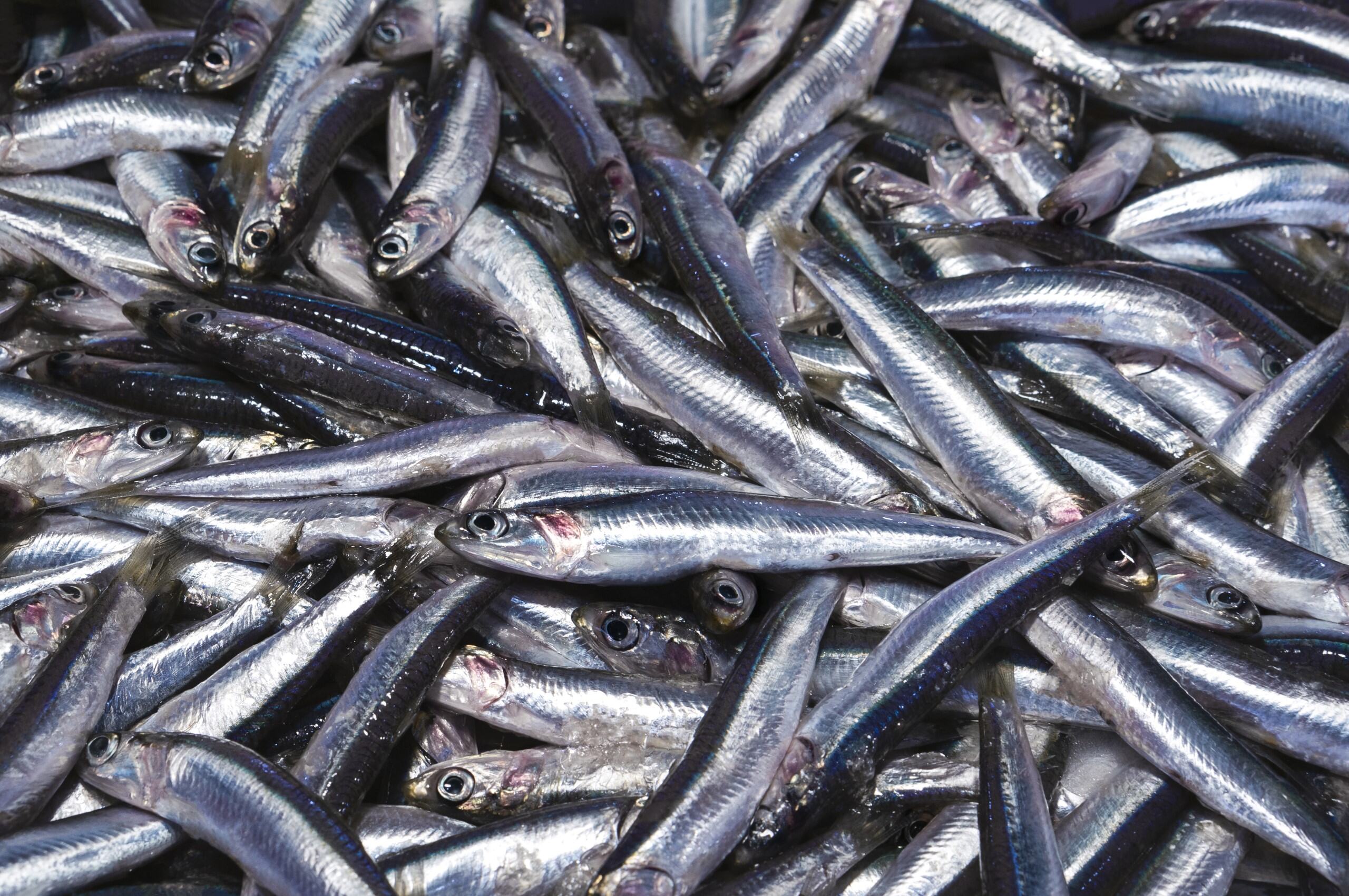
Displacing Nutrition: The Role of Salmon Aquaculture in Global Inequality
How industrial ocean farming diverts resources from low-income countries and contributes to devastating overfishing at sea
Atlantic salmon, the dominant species used in salmon aquaculture, are piscivorous: They naturally eat other fish. The rapid expansion of the industry from an estimated 33,800 metric tons in 1984 to over 2.5 million metric tons in 2004, along with the growth of other types of aquaculture and agriculture, has put tremendous pressure on wild fish populations around the world.1
Fish meal and fish oil are essential ingredients in feed formulas used in salmon farming. Today, it is estimated that 20% of wild fish caught each year around the world are ground up, rendered, and fed to farmed fish, including salmon.
Studies show that it takes between two and four kilograms of wild caught fish to produce one kilogram of farmed salmon.2 Although this ratio has diminished in recent years thanks to improved formulations and new ingredients like insect protein,3 it is generally accepted that more than one kilogram of wild fish is still needed to grow one kilogram of salmon.4
Salmon farming companies have contributed to the growth of forage fish fisheries around the world – species like menhaden, anchovies, mackerel, and sardines – devastating the base of ocean food webs and transferring edible fish from communities in the global south to consumers in places like Europe and North America.5
Peru remains the world’s largest producer of fish meal and fish oil, sending one million tons to markets in Canada, the U.S., the U.K., and European Union, among other destinations, every year. Overfishing, corruption, and intense pollution are features of the industry, which is carried out at such a scale that it negatively affects Pacific Ocean productivity over a vast area.6
West African countries like Senegal, Mauritania, and Gambia are also trouble spots. The fish meal and fish oil industry in the region has grown tenfold since 2010 and has direct ties to salmon farming companies.7 This rush has led to rampant illegal, unregulated, and unreported fishing and intense coastal pollution near rendering plants, depriving people of food and livelihoods.8
Farmed salmon are fed large amounts of fish meal and fish oil, which are made from wild-caught forage fish such as anchovies, sardines and mackerel.9 These small fish are a vital and affordable source of protein for millions of people in developing countries, where they play a key role in food security. 10
However, industrial aquaculture diverts these resources to produce salmon for wealthier markets, leaving vulnerable communities facing increased food shortages. This shift strains marine ecosystems and sustains an inequitable food system. 11,12


In-text Citations:
- Folsom, W. B. (1987). World Salmon Aquaculture, 1986–87 [Non-series report]. U.S. National Marine Fisheries Service. https://repository.library.noaa.gov/view/noaa/67277
- Naylor, R. L., Goldburg, R. J., Mooney, H., Beveridge, M., Clay, J., Folke, C., Kautsky, N., Lubchenco, J., Primavera, J., & Williams, M. (1998). Nature’s subsidies to shrimp and salmon farming. Science, 282(5390), 883–884 https://doi.org/10.1126/science.282.5390.883
- Haug Eide, L., Rocha, S. D. C., Morales-Lange, B., Kuiper, R. V., Dale, O. B., Djordjevic, B., Hooft, J. M., & Øverland, M. (2024). Black soldier fly larvae (Hermetia illucens) meal is a viable protein source for Atlantic salmon (Salmo salar) during a large-scale controlled field trial under commercial-like conditions. Aquaculture, 579. https://doi.org/10.1016/j.aquaculture.2023.740194
- Moore, G. (Ed.). (2024, February 13). Salmon farmers defend responsible use of wild fish in feed. Fish Farming Expert. https://www.fishfarmingexpert.com/compassion-in-world-farming-feed-salmon/salmon-farmers-defend-responsible-use-of-wild-fish-in-feed/1727087
- Folsom, W. B. (1987). World Salmon Aquaculture, 1986–87 [Non-series report]. U.S. National Marine Fisheries Service. https://repository.library.noaa.gov/view/noaa/67277
- Naylor, R. L., Goldburg, R. J., Mooney, H., Beveridge, M., Clay, J., Folke, C., Kautsky, N., Lubchenco, J., Primavera, J., & Williams, M. (1998). Nature’s subsidies to shrimp and salmon farming. Science, 282(5390), 883–884. https://doi.org/10.1126/science.282.5390.883
- Changing Markets Foundation & Greenpeace Africa. (2021, June). Feeding a monster: How European aquaculture and animal feed industries are stealing food from West African communities [Report]. https://changingmarkets.org/report/feeding-a-monster-how-european-aquaculture-and-animal-industries-are-stealing-food-from-west-african-communities/
- The New Yorker. (2021, March 1). How fish-meal production is destroying Gambia’s waters [Video]. YouTube. https://www.youtube.com/watch?v=Yipf1nU9Lf8
- Figueira Haugen, J., & Olaussen, J. O. (2025). Stakeholder perceptions of the Norwegian salmon farming industry and its future challenges. Ecological Economics, 230. https://doi.org/10.1016/j.ecolecon.2024.108477
- Moore, G. (Ed.). (2024, February 13). Salmon farmers defend responsible use of wild fish in feed. Fish Farming Expert. https://www.fishfarmingexpert.com/compassion-in-world-farming-feed-salmon/salmon-farmers-defend-responsible-use-of-wild-fish-in-feed/1727087
- Wear, B. (2023, June 8). How fishmeal factories put food out of reach for communities in The Gambia. DeSmog. https://www.desmog.com/2023/06/08/how-fishmeal-factories-put-food-out-of-reach-for-communities-in-the-gambia/
- Changing Markets Foundation. (2020, November 25). What lies beneath: Uncovering the truth about Peru’s colossal fishmeal and fish oil industry [Report]. https://changingmarkets.org/what-lies-beneath-uncovering-the-truth-about-perus-colossal-fishmeal-and-fish-oil-industry/

investigate
in touch
Reach out to ask a question to the coalition of nonprofit salmon conservation and research organizations who produce this site.


TO TOP







